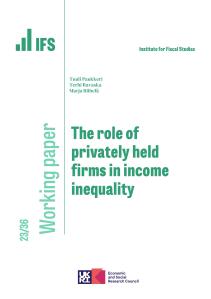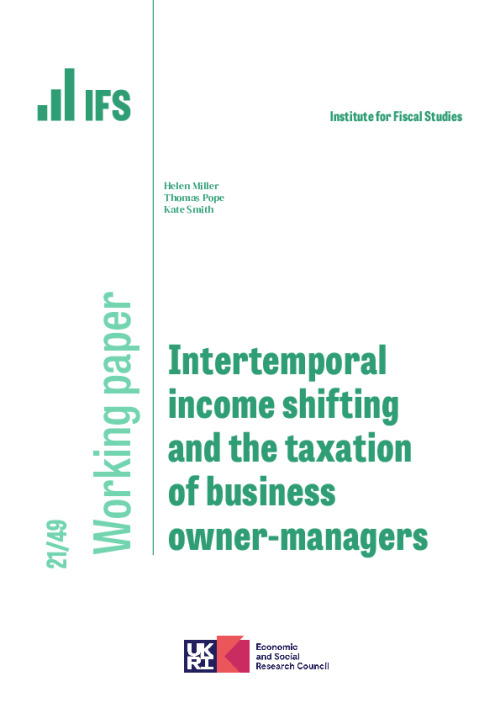Downloads
We use newly linked tax records to show that the large responses of UK company owner-managers to personal taxes are due to intertemporal income shifting and not to reductions in real business activity. Around half of this shifting is short-term and helps prevent volatile incomes being taxed more heavily under progressive personal taxes. The remainder reflects systemic profit retention over long periods to take advantage of lower tax rates, including preferential treatment of capital gains. We find no evidence that this tax-induced retention increases business investment. It does, however, substantially reduce the tax revenue raised from high income business owners.
Authors


Research Fellow London School of Economics
Kate is an IFS Research Fellow and an Assistant Professor at LSE, interested in public finance, industrial organisation and applied microeconomics.

Thomas Pope
Working Paper details
- DOI
- 10.1920/wp.ifs.2021.4921
- Publisher
- Institute for Fiscal Studies
Suggested citation
H, Miller and T, Pope and K, Smith. (2021). Intertemporal income shifting and the taxation of business owner-managers. London: Institute for Fiscal Studies. Available at: https://ifs.org.uk/publications/intertemporal-income-shifting-and-taxation-business-owner-managers (accessed: 16 April 2024).
More from IFS
Understand this issue

Spring Budget 2024: What you need to know
7 March 2024

Spring Budget 2024: the Chancellor’s options

Scottish Budget 2024-25: IFS analysis
Policy analysis

Spring Budget 2024
6 March 2024

Oil and gas make Scotland’s underlying public finances particularly volatile and uncertain
27 March 2024

Reforming the taxation of non-doms: policy options and uncertainties
4 March 2024
Academic research

The role of privately held firms in income inequality
29 November 2023

Intertemporal income shifting and the taxation of business owner-managers
24 January 2024

Insurance, redistribution, and the inequality of lifetime income
2 November 2023
